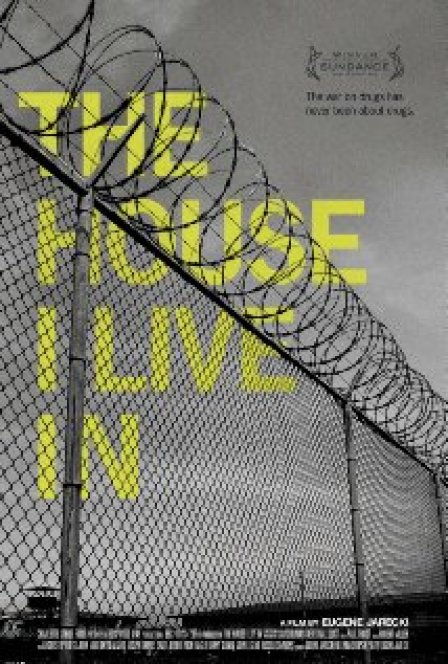The House I Live In, the new documentary by filmmaker Eugene Jarecki, takes its name from a song. Its lyrics were written by one Lewis Allen, a.k.a. Abel Meeropol, a white Jewish man from the Bronx who also penned the classic Strange Fruit. This sets an apt tone for Jarecki’s film. Following his earlier documentaries The Trials Of Henry Kissinger and Why We Fight, The House I Live In is Jarecki’s potent and personal account of America’s troubled history with drugs. This is a vast and sweeping topic that reduces uneasily to the length of a feature film, but Jarecki does an admirable job of corralling the narrative. He avoids wonkish talking heads, instead going into the streets (and prison cells, judge’s chambers, and cop cars) to find individuals who can articulate the conflict. Jarecki also frames his story through the experience of his childhood caretaker Nannie Jeter, a Black woman who worked for the Jarecki family (Eugene’s brother is Andrew Jarecki of Capturing The Friedmans fame).
It’s only as an adult that Jarecki pieces together Nannie’s painful past, and confronts the extent to which Nannie and her family suffered due to drugs and poverty (her son battled addiction, eventually succumbing to AIDS). If Nannie’s story is a narrative anchor of the film, the de facto narrator is David Simon, the crime reporter and creator of The Wire and Treme. Simon’s sharp and eloquent commentary allows Jarecki to telescope from the individual to the historical, and Paul Frost’s precise editing helps to focus the jazzy, somewhat cacophonous rhythm of the film. Still, it remains an impassioned rather than impartial work. As Manohla Dargis puts it, The House I Live In is an “activist documentary,” and Jarecki isn’t coy about this. Nor should he be. As the film shows, America’s decades-long War On Drugs, fueled by hysteria, prejudice, and fear, is a policy failure, consuming vast amounts of financial and political capital while doing little to curb drug use and addiction. The House I Live In is a thoughtfully constructed argument for the need for reform.
Over one trillion dollars have been spent on the War On Drugs, and whole communities decimated by incarceration, but narcotics remain a billion-dollar industry. What is lost in the rhetoric of war is the conception of drug addiction as a public health issue. I was surprised to learn that though Nixon launched the War On Drugs (and coined the term), two thirds of the budget initially went to treatment rather than the enforcement of drug laws. This was quickly reversed, spectacularly so, under Reagan, who veiled his poisonous mandatory minimums (federally mandated minimum sentences for drug offenders) behind Nancy Reagan’s chirpy “Just Say No!” campaign. I remember being subjected to D.A.R.E. (Drug Abuse Resistance Education) in middle school, which amounted to little more than “scared straight” tactics delivered in monotone by a police officer. If my high school is indicative, this kind of “education” did little to curb the appetites of the Boomer offspring of the New Jersey suburbs, who made frequent allowance-fueled forays to Washington Square Park to cop drugs.
Historical context is provided by Michelle Alexander, author of The New Jim Crow, and historian Richard Miller, who trace the thorny roots of drug criminalization through America’s past, from California opium dens to the Northern migration of African Americans from the segregated South. Mirroring immigration, civil rights, and other social forces, hysteria over drug use happens in cycles (Reefer Madness, anyone?), which Jarecki connects to the current public enemy, methamphetamine. As Simon points out, any group “denied access to the core economic engines of society” will be vulnerable to drugs. Meth is moving the drug war into white working class communities, proving that “capitalism is fairly colorblind at the end.” This is an interesting pivot into class issues for a film largely focused on race. Jarecki doesn’t quite have time to pursue it fully, but his larger point about social justice is still made. One of the film’s missteps, though, is how Jarecki tries to link the War On Drugs with the Holocaust, a connection that feels forced. But his sense of urgency is not. The absurd logic of mandatory sentencing, and the resulting stigma, imprisons families in a cycle of addiction and poverty. The absence of fathers is an opportunity for drug dealers to become the leaders of their communities, “hood famous” benefactors who dispense sneakers and cash to kids. It’s not insignificant that these kids now have a powerful new figure to look up to, but even with Barack Obama in the White House, The House I Live In makes a case for substantive change.

